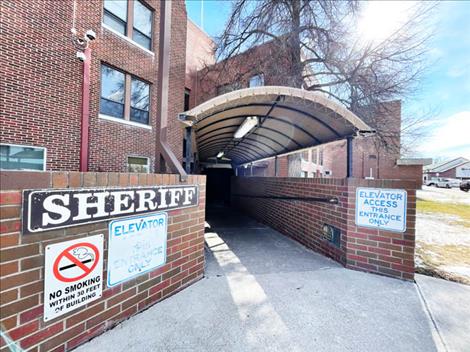Dozens of prisoners file lawsuits for inadequate living conditions
Hey savvy news reader! Thanks for choosing local.
You are now reading
1 of 3 free articles.
News by Valley Journal Staff
LAKE COUNTY — More than two dozen prisoners have filed lawsuits against various officials in the City of Polson and Lake County and the entities themselves in the past six months in regard to conditions at the Lake County Jail.
A judge in federal court in Missoula has ordered attorney Tim Bechtold to represent the plaintiffs and consolidate the cases into one.
“Right now, it is not a class action,” Bechtold said.
Bechtold has until the end of March of consolidate the cases. He’s spoken with around 20 inmates so far and says the “their primary concern is conditions of confinement.”
In the individual lawsuits filed, prisoners say they are complaining about inadequate housing and overcrowding, inadequate right to religion, inadequate access to the law library, inadequate fire safety equipment, and inadequate representation by public defenders.
While some of the individual cases ask for compensatory damages of $1,500 for each day spent in the jail and punitive damages of $1.5 million per defendant, Bechtold noted that there are strong limitations on claims against government entities. For instance, the Federal Tort Claims Act prohibits punitive damages being awarded in cases against the government.
The consolidated cases will likely focus more on injunctive relief, Bechtold said.
The Lake County Jail was previously sued in 1995 by prisoners alleging inadequate conditions. That lawsuit ended in a consent decree with the county agreeing to make changes correcting problems in the jail. Bechtold says the changes agreed to in the consent decree were not implemented.
“Many conditions are similar to what was at issue in 1995,” Bechtold said.
The county did make an attempt in recent years to fund jail improvements. In 2020 county voters cast 4,638 votes against a levy that would have raised $2.5 million annually over the next 20 years to expand the jail and the Lake County Courthouse. Those in favor of the initiative only totaled 2,446 votes.
The county is also currently waiting for a response from Governor Greg Gianforte’s office after sending him a letter on Feb. 8, asking for relief for the burden of funding Public Law 280. This law allows Confederated Salish and Kootenai tribal members to be prosecuted through the local county courts. The Confederated Salish and Kootenai Tribes are the only Montana tribe that opted into this system when it first came available in the 1960s. Other tribes in Montana prosecute felonies through federal courts.
According to a legislative fiscal note, in 2019, 70 percent of felony prosecutions in Lake County were of tribal members, accounting for more than $4 million in costs annually to the county.
County Commissioner Gale Decker told tribal council in February that while the county agrees that the system is the best framework for law enforcement on the reservation, it is eating away at the county’s annual funding, with associated costs totaling 40-60% of the budget in recent years according to Decker.
The letter to Gianforte says the situation “has now reached critical mass,” and calls the law an unfunded mandate. The letter asked for $4 million be sent to the county and asked for a meeting with Gianforte within 60 days. If there is no development on the issue in that time, the county may file a lawsuit.
The Valley Journal followed up with the commissioners and asked if any funding received via the state might be used on the jail.
“Due to the potential litigation, the Commissioners will not have any comment about conditions in the detention center,” Decker said in an email. “Until the County receives a settlement amount from the state and ongoing funding, decisions about where those dollars might be spent are premature. The Commissioners have stated that any funding could be used in a variety of ways. There are many needs in the County and the Commissioners will consider all of those if dollars become available.”
















